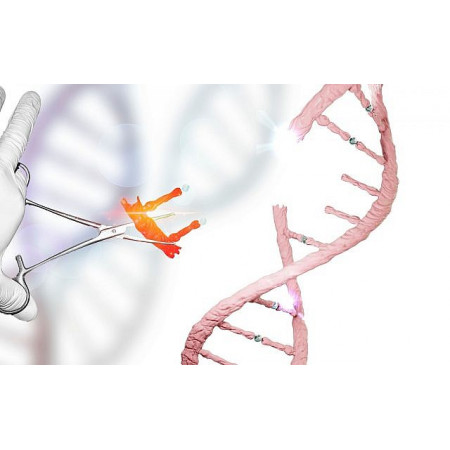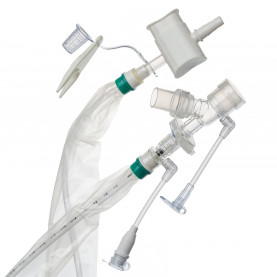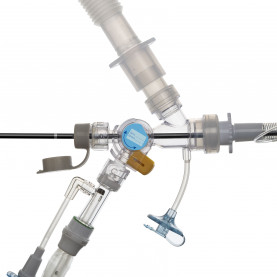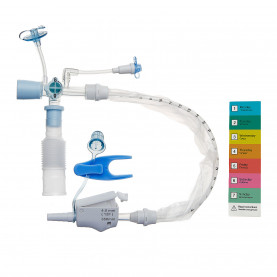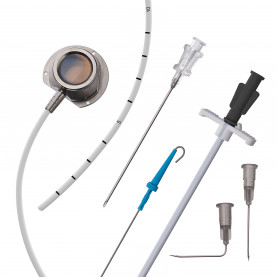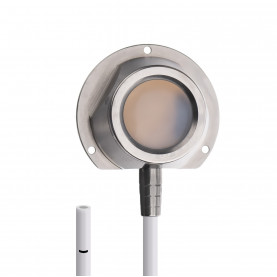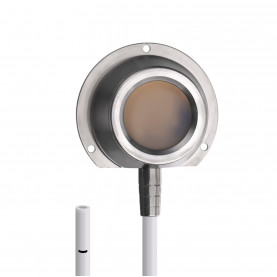Israel leading charge toward the next health frontier: Personalized medicine
With its variety of homogeneous populations and tech background, the Startup Nation can be a key player in the medicine of the future, says Prof. Shulamit Michaeli
Medicine Is Going Personal, Driven By The Dropping Cost Of Genetic Testing. And The Global Medical Community Is Abuzz With Anticipation For The Ability To Treat Patients With Therapies Specifically Suited To Their Needs Rather Than Generic Medications.
Snipping Away At Defective Disease-causing Genes Using “molecular Scissors,” Studying Gut Bacteria To Diagnose Illnesses, Mapping Out Cancer Cells Using Gold Nanoparticles And Leveraging Patients’ Own Immune Systems To Fight Cancer And “silence” Cancerous Genes Are All Part Of This Vision Of Personalized Medicine.
Personalized Medicine Is Crucial In The Early And Precise Diagnosis Of Serious Diseases And The Development Of Effective And Less Toxic Treatments, Based On The Patient’s Genetic Profile. It Is This Profile That Has A Significant Impact Whether Patients Will Respond Well To Specific Treatments.
Although The Field Is Still Young, It Is Growing Rapidly Both In Academia And In The Pharmaceutical Industry. Israel, North America, The Uk And European States Are All Allocating Huge Resources For The Development Of Personalized Medicine, Which Is Seen As The Medicine Of The Future.
In The Not-so-distant Future, Predicted Prof. Shulamit Michaeli, Doctors Will Be Able To Diagnose Colon Cancer, Brain Tumors And Breast Cancer Via A Simple Blood Test, Even Before The Diseases Become Fully Blown Illnesses. And When They Find Cancer, They Will Be Able To Target The Genetic Mutations That Are At Its Core With A Cocktail Of Medications That Will Not Have Any Side Effects.
“these New Methods Will Revolutionize How We Treat Patients Today,” Said Michaeli, The Vp For Research And Director Of The Dangoor Center For Personalized Medicine At The Bar-ilan University, In An Interview With The Times Of Israel. “we Are Closer To This Than We Think.”
Israel Is Fertile Ground For Research In This Field, She Explained, Because Of Its Multiplicity Of Homogeneous Populations And Its Strong Body Of Academic Research In Big Data, Artificial Intelligence And Bio-informatics.
The Country’s Residents Are A Mix Of Ashkenazi, Sephardi And Ethiopian Jews, Circassians, Arabs And Bedouin – Populations Are Generally Very Inbred: Ashkenazi Jews, For Example, For Centuries Married Similar Ashkenazi Jews, She Explained.
“this Has Led To The Multiplication Of Genetic Mutations, And Is A Serious Problem For These Kind Of Populations, But Also Fertile Ground For Research,” Michaeli Said.
Many Ashkenazi Jewish Women, For Example, Have Been Found To Have A Higher-than-average Risk Of Mutations In The Brca1 And Brca2 Genes That Have Been Linked To Breast Cancer. These Gene Mutations Are Common In A Population That Originates From A Small Group Of Ancestors That Were Geographically Or Culturally Isolated, Research Has Shown, As Opposed To Populations That Are Larger And That Have Commingled With More Genetically Diverse People.
Israel Aims To Become A Global Leader In Digital Health. It Has Set Up A National Digital Health Plan That Aims To Create A Digital Database Of Some 9 Million Residents’ Medical Files And Make Them Available To Researchers And Enterprises. Israel Speculates It Could Nab Some 10% Of The $6 Trillion Digital Health Sector.
At A Recent Conference In Tel Aviv, Prime Minister Benjamin Netanyahu Said That Personalized Medicine Is “potentially The Biggest Industry Of All,” And Israel Is Hoping To Lead The Way In This Field, Just As It Has In Cybersecurity.
Haifa’s Technion – Israel Institute Of Technology And The Weizmann Institute Of Science — Where The Cancer Busting Car-t Cells Were Developed — Also Have Personalized Medicine Centers.
Bar-ilan’s Dangoor Center However, Set Up In 2017, Intends To Spearhead The Startup Nation’s Activities In This Realm And Has Already Gathered Over 40 Scientists Dedicated To Personalized Medicine. They Work At Both The Main Ramat Gan Campus Of The University And The Campus Of The Faculty Of Medicine In Safed. These Scientists Come From The Fields Of Medicine And Life Sciences, Engineering, Exact Sciences And Even Social Sciences.
And Although Tackling Cancer Is At The Heart Of Personalized Medicine Research, Bar-ilan University Has A Broader Vision, One Designed To Increase The Impact On Other Diseases As Well. The Idea, Said Michaeli, Is To Help Form A Nucleus Of Research That Can Lead To The Development Of Effective Drugs In Israel And Globally.
Research At The Center Is Focused On Five Main Areas:
Tackling Mental Illness. Researchers Are Seeking To Create Individualized Treatments For Patients Through The Development Of Diagnostic Tests To Detect Genetic Diseases And Drug Abuse. This Is A Unique Direction Not Yet Adopted By Other Existing Personalized Medicine Centers In Israel, Like The Technion And The Weizmann, Explained Michaeli.
Prof. Eva Gilboa Schectman Of The Bar-ilan Department Of Psychology And The Gonda Goldschmied Brain Research Center, For Example, Is Working Together With The Computer Science And Artificial Intelligence Department Of The University To Create A “depression Meter” — A Ranking Of The Levels Of Depression In Patients Based On Data Analytics Designed To Diagnose The Level Of Depression And To Monitor The Success Of Psychological And Drug Treatment For The Progress Of Patients With The Disease, Based On Analysis Of Data Collected On The Patients.
Intestinal Bacteria. By Studying Gut Bacteria, Their Contribution To Our Health And Their Influence On The Development Of Diseases, Researchers Aim To Develop Vaccines And Understand How The Gut Microbial Population Affects Behavior And Leads To Disorders, Obesity And Diabetes. Researchers Are Also Looking Into How Bacteria Affect Pregnancies And Aging.
Rna Therapeutics. Rna Is The Molecules That Help With The Coding, Decoding And Regulation And Expression Of Genes. Here Researchers Are Working On Nanoparticles To “silence” Cancer-creating Genes In Order To Defeat Diseases Such As Pancreatic Cancer And Lung Cancer, Which Are Aggressive And Can Be Terminal. These Nanoparticles Will Attach To The Rna Of Cancer Cells And Silence Them, Leaving The Healthy Cells Unharmed.
Researchers Are Also Looking Into Using Nanoparticles To Treat Congenital Genetic Diseases, In Cases Where Improvement May Be Reached By Eradicating The Mutant Gene. Prof. Tzipora Falik Zaccai Of The Azrieli Faculty Of Medicine And Others Are Focusing On Genetic Diseases And Malformations That Are Seen Commonly In Populations In Northern Israel — Jewish, Muslim, Druze And Circassian — That Tend To Marry Within Their Own Communities, Creating A Rather Contained Gene Pool. This Enables The Study Of Genetic Diseases Within A Relatively Controlled Environment.
Gene Therapies. Researchers Are Studying How To Treat Some Blood Cancers On The Gene Level Using Crispr Technology – “molecular Scissors” — To Cut Off A Defective Gene On A Dna Sequence And Replace It With A Normal Synthetic Gene. This Brings About Changes To The Dna With High Accuracy And Efficiency Levels, Relatively Quickly, And Within A Short Timeframe, Michaeli Said.
“we Are Talking About A Procedure Of Years Being Shortened To Weeks, And A Reduction Of Cost To Less Than $100 Per Treatment,” Explained Michaeli.
Immunotherapy. Here Researchers Are Looking To Develop New Technologies That Leverage The Patient’s Own Immune System, Using T-cells To Fight Serious Diseases Like Cancer, Alzheimer’s, Parkinson’s, Diabetes, And Depression. Immunotherapy Is A Treatment That Is Hoped May Replace Or Work Together With Chemotherapy For Cancer, For Example.
Researchers At The Dangoor Center Are Developing Imaging Methods Using Gold Nanoparticles To Identify Which Of The Patients In Different Cancers Would Respond Well To Immunotherapy.
“with Around 40 Trillion Complex Cells Making Up Each Human Being, We Are All Likely To Have Significant Differences In Our Biological Makeup,” British Businessman And Philanthropist David Dangoor, Who Set Up The Center In 2017, Said In An Email Interview. “that Means That Every Person’s Illness Is Best Treated In The Way That Is Precisely Calibrated For The Individual. There Is Huge Evidence Now That This Focus On The Individual Yields Much Better Outcomes.”
Setting Up The Center In Israel Has Its Advantages, He Said, “because Israel Has Become One Of The Powerhouses Of Scientific Progress In The World. The Record Of Growing New Ideas Coming Out Of Israel Makes Israel An Ideal Place For Innovation.”
Bar-ilan, With Its Campus Culture Entrenched In Ancient Jewish Tradition But Also At The Forefront Of Innovation, Is An Ideal Venue For The Center, He Added.



